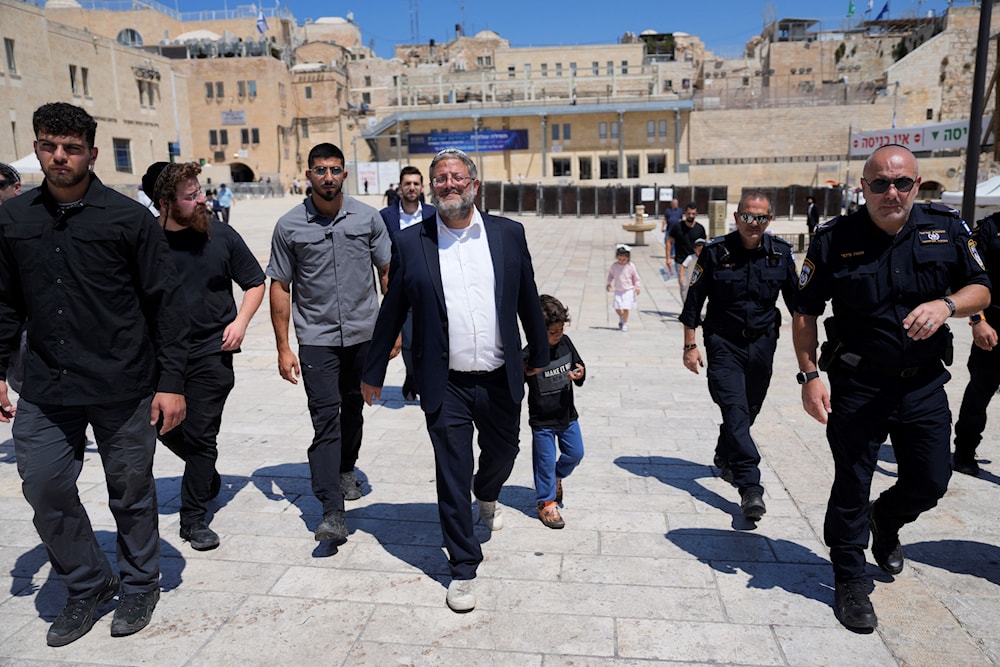Ben-Gvir storms Al-Aqsa Mosque, sparks strong condemnation
Israeli Minister Itamar Ben-Gvir's storming of the Al-Aqsa Mosque compound drew strong condemnation from Jordan, Saudi Arabia, and Hamas amid concerns over violations of the status quo.
-
 "Israel's" Police Minister Itamar Ben-Gvir approaches the entrance to al-Quds' most sensitive holy site on August 13, 2024 (AP)
"Israel's" Police Minister Itamar Ben-Gvir approaches the entrance to al-Quds' most sensitive holy site on August 13, 2024 (AP)
Israeli Police Minister Itamar Ben-Gvir stormed the Al-Aqsa Mosque compound in occupied al-Quds' Old City on Wednesday, his spokesperson confirmed, drawing sharp criticism from Jordan, Saudi Arabia, and Hamas.
Ben-Gvir stormed the site after rejoining the government last month following the resumption of the Israeli war against Hamas in Gaza. Ben-Gvir had resigned from the cabinet in January in protest of a ceasefire agreement in the Palestinian territory.
Since Prime Minister Benjamin Netanyahu’s government took office in late 2022, Ben-Gvir has stormed the Al-Aqsa compound at least eight times, with each visit triggering widespread condemnation.
Dangerous, provocative escalation
Jordan, the official custodian of the holy site, denounced Wednesday's storming as "dangerous escalation" and "an unacceptable provocation".
Hamas condemned the storming as a "provocative and dangerous escalation," calling it part of an "ongoing genocide against our Palestinian people" and urging Palestinians in the occupied West Bank to intensify resistance.
Saudi Arabia’s Foreign Ministry also issued a statement strongly condemning Ben-Gvir’s actions.
Riyadh voiced its "strongest condemnation of the storming of the Al-Aqsa Mosque by the Israeli National Security Minister under the protection of occupation police," the foreign ministry said in a statement.
Al-Aqsa is Islam’s third-holiest site and a key symbol of Palestinian national identity.
Under the long-standing status quo, maintained since "Israel" occupied the eastern part of occupied al-Quds in 1967, non-Muslims are allowed to visit the site during designated hours but are not permitted to pray there. The site is administered by Jordan, while "Israel" controls access.
In recent years, increasing numbers of Israeli extremists, including Ben-Gvir, have defied the status quo by publicly praying at the site in 2023 and 2024.
The United Nations has previously condemned "any efforts to change the status quo within the holy sites."

 2 Min Read
2 Min Read









